Creating a balanced and nutritious meal plan for your dog is essential for their health and well-being. However, with the vast array of breeds and sizes, it can be challenging to find the perfect diet that meets your dog's specific needs. This comprehensive guide provides customizable dog meal plan ideas tailored to different breeds and sizes, ensuring your furry friend gets the nutrition they need to thrive.
Understanding Your Dog's Nutritional Needs
Key Nutrients for Dogs
Regardless of breed or size, all dogs require a balanced diet that includes the following key nutrients:
- Proteins: Essential for muscle growth and repair. Sources include meat, fish, eggs, and legumes.
- Fats: Provide energy and support skin and coat health. Sources include fish oil, chicken fat, and flaxseed oil.
- Carbohydrates: Supply energy and support digestive health. Sources include sweet potatoes, brown rice, and oats.
- Vitamins and Minerals: Support various bodily functions, including immune health and bone development. Sources include fruits, vegetables, and supplements.
Factors to Consider
When creating a meal plan for your dog, consider the following factors:
- Age: Puppies, adults, and senior dogs have different nutritional requirements.
- Activity Level: Active dogs require more calories and nutrients than less active ones.
- Health Conditions: Dogs with specific health issues may need specialized diets.
- Breed and Size: Different breeds and sizes have unique dietary needs.
Customizable Meal Plan Ideas
Small Breeds
Small breeds, such as Chihuahuas, Pomeranians, and Dachshunds, have fast metabolisms and require nutrient-dense meals. Here's a customizable meal plan idea for small breeds:
Breakfast: Chicken and Sweet Potato
Ingredients:
- 1/2 cup cooked, shredded chicken
- 1/4 cup cooked sweet potatoes, mashed
- 1 tablespoon peas
- 1 teaspoon fish oil
Instructions:
- Combine all ingredients in a bowl.
- Mix well and serve.
Lunch: Turkey and Brown Rice
Ingredients:
- 1/2 cup cooked, ground turkey
- 1/4 cup cooked brown rice
- 1 tablespoon carrots, diced
- 1 teaspoon olive oil
Instructions:
- Combine all ingredients in a bowl.
- Mix well and serve.
Dinner: Salmon and Quinoa
Ingredients:
- 1/2 cup cooked, flaked salmon
- 1/4 cup cooked quinoa
- 1 tablespoon green beans, chopped
- 1 teaspoon flaxseed oil
Instructions:
- Combine all ingredients in a bowl.
- Mix well and serve.
Medium Breeds
Medium breeds, such as Beagles, Bulldogs, and Cocker Spaniels, require a balanced diet that supports their moderate energy levels. Here's a customizable meal plan idea for medium breeds:
Breakfast: Beef and Oatmeal
Ingredients:
- 1 cup cooked, ground beef
- 1/2 cup cooked oatmeal
- 1/4 cup spinach, chopped
- 1 tablespoon coconut oil
Instructions:
- Combine all ingredients in a bowl.
- Mix well and serve.
Lunch: Lamb and Brown Rice
Ingredients:
- 1 cup cooked, ground lamb
- 1/2 cup cooked brown rice
- 1/4 cup zucchini, diced
- 1 tablespoon fish oil
Instructions:
- Combine all ingredients in a bowl.
- Mix well and serve.
Dinner: Chicken and Barley
Ingredients:
- 1 cup cooked, shredded chicken
- 1/2 cup cooked barley
- 1/4 cup broccoli, chopped
- 1 tablespoon olive oil
Instructions:
- Combine all ingredients in a bowl.
- Mix well and serve.
Large Breeds
Large breeds, such as German Shepherds, Golden Retrievers, and Labradors, have higher calorie needs and require diets that support joint health. Here's a customizable meal plan idea for large breeds:
Breakfast: Turkey and Sweet Potato
Ingredients:
- 2 cups cooked, ground turkey
- 1 cup cooked sweet potatoes, mashed
- 1/2 cup peas
- 2 tablespoons fish oil
Instructions:
- Combine all ingredients in a bowl.
- Mix well and serve.
Lunch: Beef and Brown Rice
Ingredients:
- 2 cups cooked, ground beef
- 1 cup cooked brown rice
- 1/2 cup carrots, diced
- 2 tablespoons flaxseed oil
Instructions:
- Combine all ingredients in a bowl.
- Mix well and serve.
Dinner: Salmon and Quinoa
Ingredients:
- 2 cups cooked, flaked salmon
- 1 cup cooked quinoa
- 1/2 cup green beans, chopped
- 2 tablespoons coconut oil
Instructions:
- Combine all ingredients in a bowl.
- Mix well and serve.
Puppies
Puppies require a diet rich in protein and calories to support their rapid growth and development. Here's a customizable meal plan idea for puppies:
Breakfast: Chicken and Rice
Ingredients:
- 1 cup cooked, shredded chicken
- 1/2 cup cooked white rice
- 1/4 cup peas
- 1 tablespoon fish oil
Instructions:
- Combine all ingredients in a bowl.
- Mix well and serve.
Lunch: Turkey and Sweet Potato
Ingredients:
- 1 cup cooked, ground turkey
- 1/2 cup cooked sweet potatoes, mashed
- 1/4 cup carrots, diced
- 1 tablespoon olive oil
Instructions:
- Combine all ingredients in a bowl.
- Mix well and serve.
Dinner: Beef and Barley
Ingredients:
- 1 cup cooked, ground beef
- 1/2 cup cooked barley
- 1/4 cup spinach, chopped
- 1 tablespoon flaxseed oil
Instructions:
- Combine all ingredients in a bowl.
- Mix well and serve.
Senior Dogs
Senior dogs may have specific dietary needs due to age-related health issues. Here's a customizable meal plan idea for senior dogs:
Breakfast: Turkey and Brown Rice
Ingredients:
- 1 cup cooked, ground turkey
- 1/2 cup cooked brown rice
- 1/4 cup green beans, chopped
- 1 tablespoon fish oil
Instructions:
- Combine all ingredients in a bowl.
- Mix well and serve.
Lunch: Chicken and Sweet Potato
Ingredients:
- 1 cup cooked, shredded chicken
- 1/2 cup cooked sweet potatoes, mashed
- 1/4 cup peas
- 1 tablespoon olive oil
Instructions:
- Combine all ingredients in a bowl.
- Mix well and serve.
Dinner: Salmon and Quinoa
Ingredients:
- 1 cup cooked, flaked salmon
- 1/2 cup cooked quinoa
- 1/4 cup carrots, diced
- 1 tablespoon flaxseed oil
Instructions:
- Combine all ingredients in a bowl.
- Mix well and serve.
Tips for Customizing Your Dog's Meal Plan
Consult Your Veterinarian
Before making any significant changes to your dog's diet, consult your veterinarian. They can provide personalized recommendations based on your dog's specific health needs and dietary requirements.
Monitor Your Dog's Weight
Regularly monitor your dog's weight and adjust their food intake as needed. Overfeeding, even with healthy food, can lead to obesity and related health issues.
Incorporate Variety
Incorporate a variety of proteins, carbohydrates, and vegetables into your dog's diet to ensure they receive a wide range of nutrients. This can also prevent food sensitivities from developing.
Use Supplements Wisely
If your dog has specific health needs, consider adding supplements to their diet. Common supplements include:
- Glucosamine and Chondroitin: Support joint health, especially in large breeds and senior dogs.
- Omega-3 Fatty Acids: Promote skin and coat health.
- Probiotics: Support digestive health.
Avoid Harmful Foods
Certain foods can be harmful or toxic to dogs. Avoid feeding your dog the following:
- Chocolate
- Grapes and raisins
- Onions and garlic
- Alcohol
- Caffeine
- Xylitol (found in sugar-free products)
Hydration is Key
Always provide fresh, clean water for your dog. Proper hydration is crucial for overall health and well-being.
Real-Life Success Stories
Case Study: Bella the Beagle
Bella, a Beagle with food sensitivities, was constantly scratching and experiencing digestive issues. Her owner, Mark, worked with a veterinarian to create a customized meal plan that included novel proteins and easily digestible carbohydrates. Within weeks, Bella's symptoms improved dramatically, and she became a happier, healthier dog.
Case Study: Max the Golden Retriever
Max, a Golden Retriever, suffered from chronic ear infections and skin inflammation. After switching to a grain-free, high-protein diet with added omega-3 supplements, Max's symptoms significantly decreased, and he enjoyed a better quality of life. His owner, Sarah, was thrilled with the results and continues to monitor Max's diet closely.
Creating a customizable meal plan for your dog involves understanding their unique nutritional needs, selecting high-quality ingredients, and ensuring a balanced diet. By following these guidelines and working closely with your veterinarian, you can develop a meal plan that supports your dog's health and well-being.
Remember, every dog is unique, and finding the right diet may require some trial and error. With patience, careful observation, and guidance from your veterinarian, you can help your furry friend thrive.


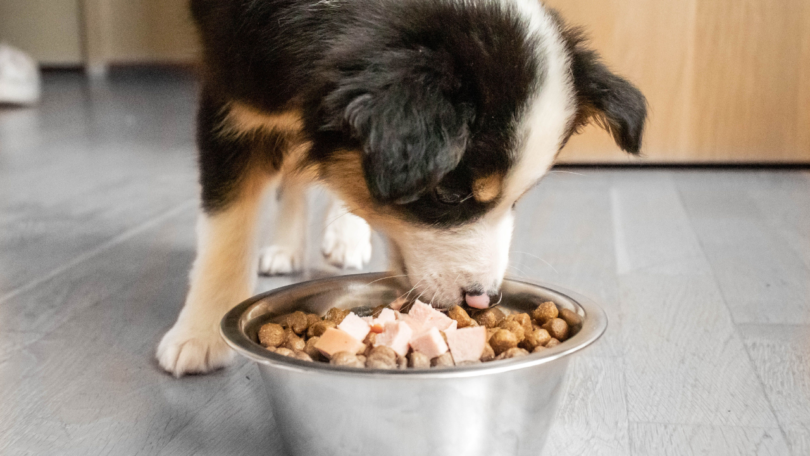
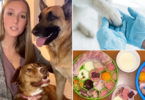
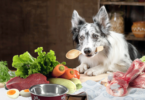
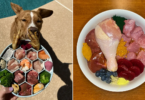
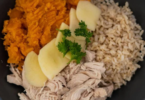

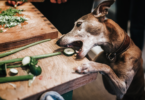


Leave a Comment